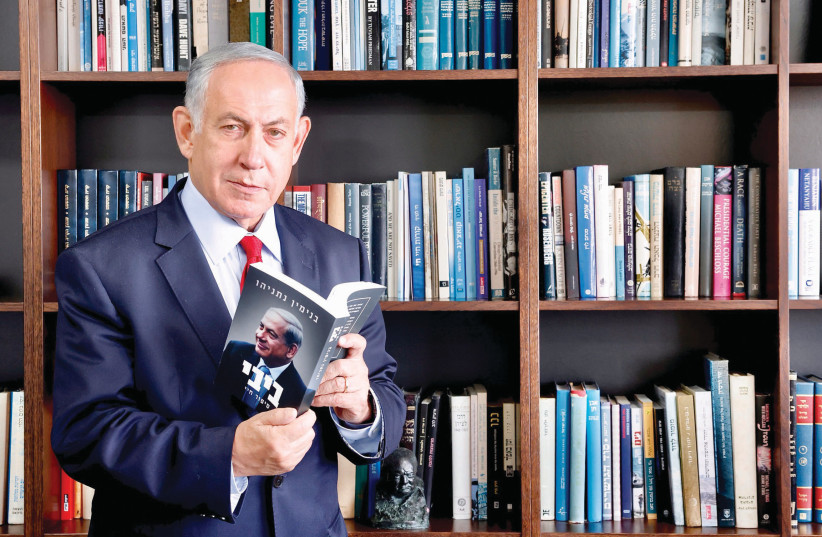Morris J. Amitay, the former executive director of the American Israel Public Affairs Committee, was eulogized this week for his passionate, energetic and successful leadership that raised AIPAC to national prominence as one of the most influential voices on Middle East policy in Washington.
His “favorite pitch,” said his son Steve in a eulogy at Washington’s historic Sixth and I Synagogue, was to emphasize that “Israel is a true democracy in a sea of autocrats.”
Morrie didn’t invent that line, but he honed it and employed it effectively, as have those who followed him. I was one of those he hired and trained. We didn’t always agree on policy – he was hawkish, I am dovish – but we had common cause in promoting US-Israeli friendship. He preached and practiced bipartisanship, expanding support for Israel into Republican ranks. Shared democratic values was a critical selling point.
That would be a tough sell today as Israel moves toward autocracy under the most extreme right-wing government in its 75-year history.
World leaders speak out: Netanyahu and his gov't need to back down from judicial reform
In a series of unprecedented moves, the presidents of Israel, the US and France have spoken out separately in recent days urging Prime Minister Benjamin Netanyahu to step back from the precipice. The same message is being sent by hundreds of thousands of Israelis protesting their government’s plans to overhaul the nation’s judicial system.

President Joe Biden’s decision to go public suggests he felt repeated personal messages from his secretary of state, national security advisor and other top officials were not being taken seriously by the prime minister. The president’s history as chair of the Senate Judiciary Committee brings added weight to his concerns about the developments in Israel, and coupled with a longstanding affinity for Israel that comes from the kishkes as well as the mind.
Biden, in a message to New York Times columnist Tom Friedman, stressed the fundamental importance of an independent judiciary and checks and balances for countries like Israel and the US. Friedman noted that it was the first time, to his knowledge, that an American president “has ever weighed in on an internal Israel debate” and the nature of its democracy.
President Isaac Herzog, in an unprecedented primetime speech to the nation, warned that the assault on the basic principles of democracy and an independent judiciary has increasingly divided the country and put it “on the brink of constitutional and social collapse.” Calling on the government to pause its rush to pass its judicial makeover, he warned, “This powder keg is about to explode. This is an emergency.”
“This powder keg is about to explode. This is an emergency.”
Isaac Herzog
NETANYAHU AND his extremist coalition appear hellbent on rushing ahead, in defiance of public and international calls to slow it down and seek a national consensus. He and his Knesset allies appear prepared to sacrifice democracy in favor of power.
The prime minister insists his approach would make Israel more democratic, but the evidence points emphatically in the opposite direction.
Alon Pinkas, former Israeli consul-general in New York, said the Netanyahu proposal is “a swift, brutal and illegitimate attempt to change the regime, curtail civil liberties, deny the Supreme Court its judicial-review powers, weaken checks and balances, destroy constitutional guardrails, and control the media and academia through constant harassment.”
For Netanyahu, it is also personal. These changes – reforms are a misnomer – are Netanyahu’s “get out of jail free” card, thanks to provisions that would effectively quash the criminal charges of fraud, bribery and breach of trust for which he is currently on trial, and grant him future immunity.
Former attorney-general Avichai Mandelblit, who had indicted Netanyahu for these crimes, said in a recent interview that the prime minister’s motivation is to nullify his trial.
Tzipi Livni, a former justice minister and foreign minister, has said Netanyahu’s “personal interest is to delegitimize the judicial system.”
The Israel Policy Forum, a center-left American Jewish organization promoting a two-state solution, called this a watershed moment in Diaspora-Israel relations.
Abe Foxman, the former head of the Anti-Defamation League, said Itamar Ben-Gvir and Bezalel Smotrich, two of Israel’s most far-right ministers, “don’t have any respect for Diaspora Jewry” and that American Jewish organizations should refuse to meet with them or give them a platform.
A growing number of American Jewish leaders and supporters of Israel in Congress, notably Jewish lawmakers, have been going public in their concerns about the threat to Israeli democracy posed by Netanyahu’s so-called judicial reforms.
The latest is Sen. Richard Durbin, chairman of the Senate Judiciary Committee and the chamber’s second-highest-ranking Democrat. He told Haaretz that the Israeli leader is “dangerously putting his own narrow political and legal interests – and those of the troubling extremists in his coalition – ahead of the long-term interests and needs of Israel’s democracy.”
Exacerbating the growing crisis, and further straining relations with the Biden administration, was this week’s announcement by Netanyahu’s office of the intent to build 10,000 new settler homes in the West Bank and convert nine illegal West Bank outposts to legitimate settlements. US Secretary of State Antony Blinken was joined by the foreign ministers of France, Germany, Italy and Britain in condemning the expansion plan.
The State Department also warned against transferring military authority in the West Bank to extremist Finance Minister Smotrich, which US officials would consider a step toward annexation, a step the US and much of the international community oppose as an obstacle to efforts to negotiate a two-state solution.
That just happens to be Netanyahu’s goal. It is going to be a tough sell for pro-Israel lobbyists – a group that achieved great political clout thanks to the bipartisanship and focus on democracy of Morrie Amitay and pro-Israel leaders – from the grassroots to Capitol Hill.
The writer is a Washington-based journalist, a consultant, a lobbyist and a former American Israel Public Affairs Committee legislative director.
